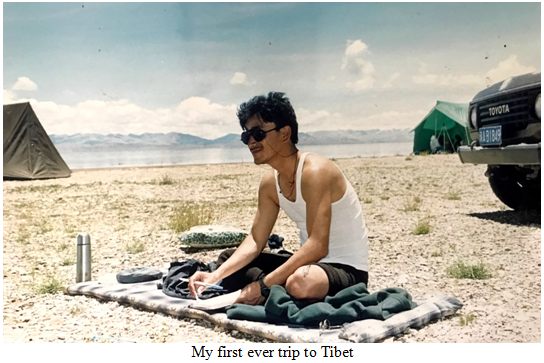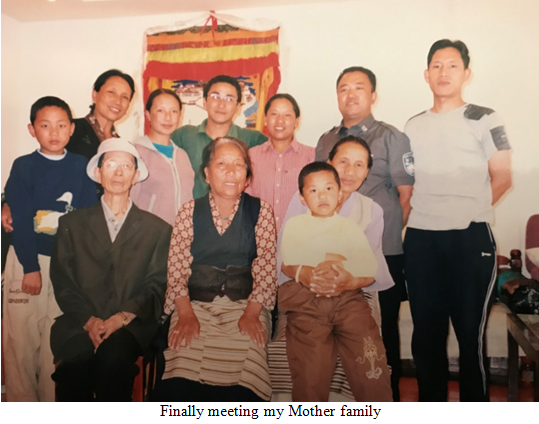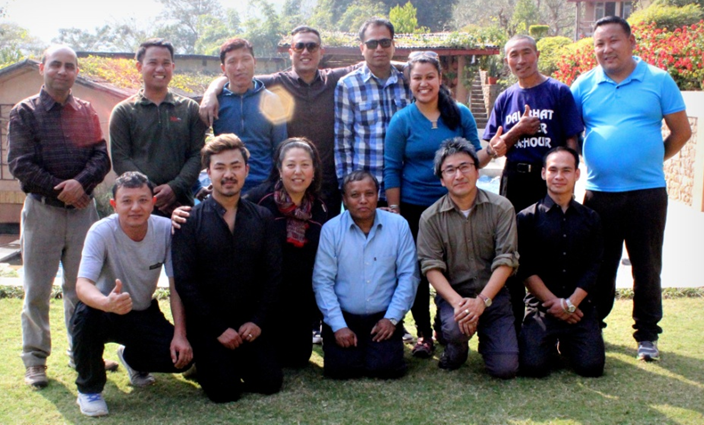
 |
Our story traces the deep, historical connection between the ancient kingdoms of Nepal and Tibet, which began around 624 CE with the marriage of Tibet’s greatest King Songtsen Gampo and Princess Bhrikuti of Nepal. This union marked the start of cultural exchange, as Princess Bhrikuti brought sacred images and skilled Newari craftsmen to Tibet. Together, they built the Jokhang Temple (originally Tsulag Khang, or House of Wisdom), which remains a spiritual landmark.
 |
Over the centuries, these exchanges flourished. In 1245 CE, the Nepali artisan Arniko led a team to Tibet, where they constructed a Golden Stupa and contributed to the Potala Palace’s design. For centuries, Newari merchants traveled the ancient trade route from Nepal to Tibet, bringing goods, art, and knowledge. Tibetan artists learned painting techniques from Nepalese masters, further solidifying the cultural bonds between the two regions.
In the early 1950s, my father, a young Newari man from a priestly family, left his traditional life to join a group of merchants heading to Tibet via Kalimpong. There, he learned watch repair and eventually fell in love with a Tibetan girl. Their journey to Kalimpong and their decision to settle there marked the beginning of my family’s own story. I grew up in Kalimpong and later Nepal, where my parents, despite personal hardships, gave their five children a loving upbringing.
 |
My first visit to Tibet in the early 1990s, leading a group on a pilgrimage to Mt. Kailash, sparked my passion for exploration. This journey, through rugged terrain and over mountain passes, set the stage for my deeper connection to Tibet’s landscape, culture, and people. In the years following my mother’s death in 2003, I made a journey to Lhasa to meet my mother’s family, whom she had not seen since leaving Tibet in the early 1950s. This trip not only connected me to my extended family but also deepened my bond with Tibet.
Inspired by my father’s adventurous spirit and my mother’s heritage, in 1998, I founded Basanta Adventure Treks and Expeditions to share the beauty and spirituality of Himalayan regions of Tibet, Nepal, and Bhutan with others.
 |
With over 20 years of experience, we now offer an extensive range of treks and expeditions across Tibet, Nepal, and Bhutan. Guided by our core belief of “doing business with a purpose,” we provide travelers with meaningful holiday experiences that immerse them in the rich natural landscapes, cultural heritage, and spiritual traditions of these regions. We are committed to educating and empowering local communities, ensuring fair and respectful treatment for every employee.
 |
Basanta Adventure is certified under ISO 900: 2015 proving our ability to consistently provide products and services that meet our customers need and regulatory requirements.
Basant Bajracharya
Founder





